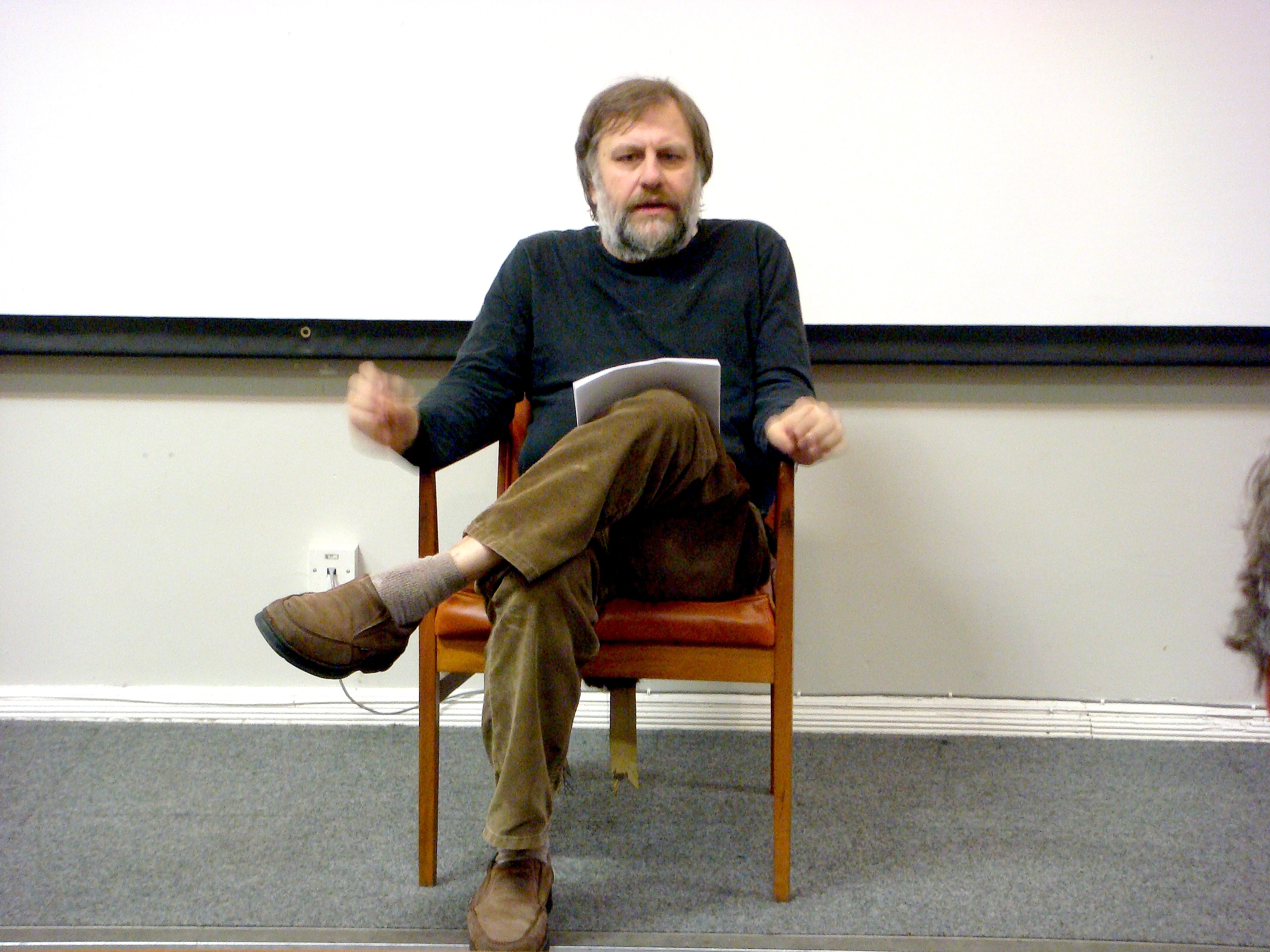Random
SLAVOJ ZIZEK, God Without the Sacred: The Book of Job, The First Critique of Ideology

The latest installment in the New York Public Library’s Three Faiths Exhibition (some of which is available online here) is a 106 minute lecture by Slavoj Zizek which is among the most plainspoken and accessible Slavoj Zizek lectures I’ve ever heard (click here for the lecture).
The St. Clement’s Episcopal Church in New York maintains (or at least used to maintain) the custom of inviting a stranger, often a non-Christian one, to deliver a sermon once each year. (The most famous of these sermons became the centerpiece of Kurt Vonnegut’s Palm Sunday.) It’s a tremendously broadminded idea — if we (whichever idea of “we” with which we’ve identified) are only listening to ourselves and not allowing any outside voices to speak unfiltered from our seat of authority, maybe we’ll miss the opportunity for a course correction as a community.
An early provocation in Zizek’s address is the intentional oversimplification that without religion, good people would do good things and bad people would do bad things, but only under the sanction of religion will good people do bad things. He complicates from there, but while I was listening, I was thinking about the oppositional power that provocation might offer within my own community of origin, which is evangelical Christianity, which, as a movement, did as much as any group to empower the rise of the Bush Administration and the horrors that accompanied that rise. I was trying to imagine one of the churches in which I was nurtured inviting Zizek to bring a message from the Book of Job in which he pursues the logical ends of the things that are said and done and believed in the name of God. I think that some people would be angry and some people would listen and become troubled. It is good to listen and become troubled.

This is great, Kyle, thanks. I’m listening now.
If I remember correctly, Zizek elaborates on Lacan’s inversion of that Doestoevsky quote “If God doesn’t exist all/nothing is permissible” toward the end of his little book How to Read Lacan.
I love Zizek most because, like Jesus, he’s a provocateur.
isnt that jeff daniels
But Jesus actually had something to say — as did Socrates, Kierkegaard, etc. Provocateurism — tourism? terr’ism? — are empty if there is no content to it.
Zizek just wants to be on TV; he’s in love with his face. Zizek just wants to be heard; he’s in love with his voice.
So was Jesus, Socrtaes, Wittgenstein, et al. Really, that argument is usually reserved for those that want to dismiss what they don’t understand.
Well, under Marxism-Leninism, good people did bad things. It isn’t just religions — tho’ I suppose Bolshevism became a lot like a religion.
I agree. I think “Ideology” is a broader, more apt term than “Religion.” I also don’t really think that the provocation holds up to Zizek’s own scrutiny — he complicates as he goes along. It’s a generalization he uses as a starting point for his discussion of Job. The idea is to take an idea and wrestle with it for awhile, the way an essayist does. (A favorite tactic of his, I’ve noticed, is to take contradictory positions within the same argument and turn them against each other. That’s not exactly what he’s doing here, though. I think his position is, rightly, that devotion to an ideological position can lead a well-intentioned person to support atrocity or lesser varieties of harm-doing, and I think that history certainly doesn’t do much to contradict this position.)
(But that’s not the only thing the talk is about. I’d be interested in your thoughts, Dreezer, if you have a chance to listen to it.)
[…] H/T Kylie Minor […]
But then, you know, without devotion to an ideological position, the advancement of any political program is made impossible, except that of the status quo.
I think you can have an intelligently open relationship to a favored ideological position without having a “devotion” to an ideological position.
@sunoxen:Wittgenstein liked to be in the spotlight? Or are you talking about him be provocative?
supershops.org
supershops.org
love-shopping.org
love-shopping.org
love-shopping.org
madeshopping.net
supershops.org=
[…] Žižek on Wagner, which is almost redundant. Also, here on whether catastrophes are virtual and here on the Book of Job as the first work of ideological […]
No content? How many of his books have you read?
His work is more critical than constructive but it is a gross error describe criticism as lacking content.
If you are digging furiously in the earth in order to reach the moon, the person who comes along to tell your that one of your premises is flawed is surely presenting you with valuable content, irrespective of whether she offers to teach you how to build rockets.
If she does so with some wit, and brings a smile to you and people gathered to watch you dig, is her message less valuable for that?
Does Zizek enjoy the limelight? The answer has absolutely nothing to do with whether his criticisms are of value. How odd to imagine otherwise.